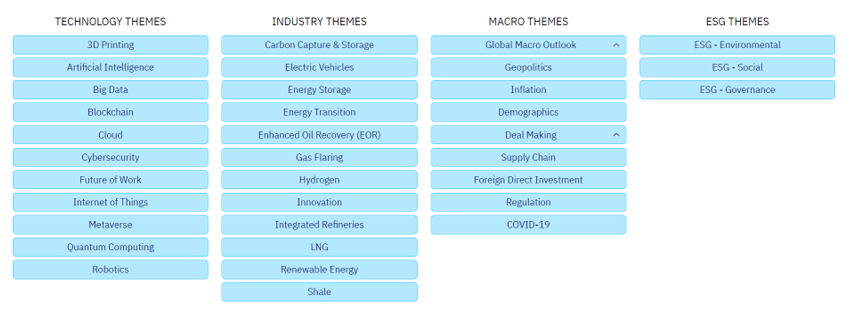
The importance of national oil companies (NOCs) in the global oil and gas industry is underlined by the fact that they control over 75% of the global oil and gas reserves. With energy demand expected to grow by more than 50% by 2030, NOCs are expected to play an increasingly important role in supplying the world’s oil and gas needs.
NOCs are comfortably positioned for steady growth in the future years in comparison with the international oil companies (IOCs). These companies are supported by the huge domestic reserves and strong backing of the national government. Even the resource seeking NOCs are better positioned than the IOCs as they have access to finances through state governments and are increasingly becoming a prefered partner by the resource-rich NOCs.
In the coming years, the NOCs are expected to lead investments in the global oil and gas sector. The major NOCs plan to invest over $540bn in the next five years in the oil and gas sector. In addition it is expected that the NOCs will spend over $260bn in 2009 as capital expenditure.
Between 2009 and 2015, the oil and gas industry will witness the growth of national oil companies, with these companies being strong competition to the established international players. The national oil companies’ role in the international market will steadily increase, driven by the expansion strategies of the NOCs and the long-term goal of the state governments.
In recent years, high crude oil prices coupled with a re-emergence of resource nationalisation has fuelled the growth of NOCs. The national governments, motivated by transferring a higher share of revenues generated from domestic oil and gas reserves, back into the country, prefer to promote the related national oil company’s dominance over the energy sector. The national oil companies too are becoming more and more growth oriented. These companies already dominate the domestic industry and are now looking to establish themselves as prominent players in the global energy market. However even today, the national oil companies are driven by the domestic country’s long-term needs and objectives.
See Also:
The table below details the rankings of the 15 major national oil companies in terms of both crude and natural gas reserves and production.
How well do you really know your competitors?
Access the most comprehensive Company Profiles on the market, powered by GlobalData. Save hours of research. Gain competitive edge.

Thank you!
Your download email will arrive shortly
Not ready to buy yet? Download a free sample
We are confident about the unique quality of our Company Profiles. However, we want you to make the most beneficial decision for your business, so we offer a free sample that you can download by submitting the below form
By GlobalData| Major National Oil Companies, Rank in Oil and Gas Reserves and Production, 2008 | ||||||
| Total Oil And Gas Reserves | Total Oil And Gas Production | Crude Oil Reserves | Crude Oil Production | Natural Gas Reserves | Natural Gas Production | |
| NIOC | 1 | 3 | 3 | 2 | 2 | 2 |
| Saudi Aramco | 2 | 1 | 1 | 1 | 4 | 5 |
| OAO Gazprom | 3 | 2 | 11 | 25 | 1 | 1 |
| PDVSA | 4 | 4 | 2 | 3 | 7 | 18 |
| Qatar Petroleum | 5 | 20 | 9 | 23 | 3 | 6 |
| Abu Dhabi National Oil Company | 6 | 19 | 6 | 15 | 5 | 19 |
| Iraq National Oil Company | 7 | 15 | 4 | 8 | 10 | 54 |
| Kuwait Oil Company | 8 | 10 | 5 | 6 | 29 | 34 |
| NNPC | 9 | 25 | 8 | 20 | 6 | 45 |
| National Oil Corporation, Libya | 10 | 24 | 7 | 19 | 13 | 42 |
| Sonatrach | 11 | 11 | 14 | 16 | 8 | 8 |
| China National Petroleum Corporation | 12 | 7 | 10 | 5 | 11 | 9 |
| Petroliam Nasional Berhad | 13 | 21 | 20 | 27 | 9 | 10 |
| Pemex | 18 | 5 | 15 | 4 | 28 | 14 |
| Petrobras | 20 | 17 | 19 | 12 | 30 | 25 |
|
Source: GlobalData/Energy eTrack Company Benchmarking Tool: The Changing Face of National Oil Companies (NOCs): NOC and State Strategies Driving Internationalisation |
||||||
This report is a licensed product and should not to be reproduced without prior permission.
The information in this document has been extracted from Alternative Energy eTrack by a registered user.
GlobalData holds no responsibility for the loss of original context and for any changes made to information following its extraction.
All information was current at the time of extraction, although the original content may have been subsequently updated.




